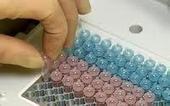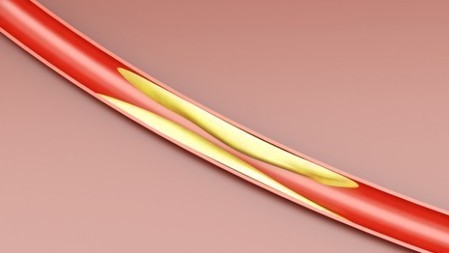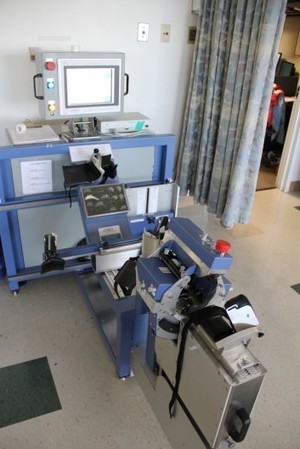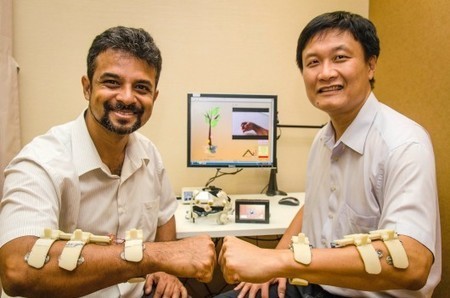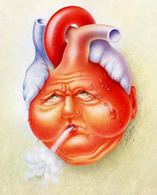 Your new post is loading...
 Your new post is loading...
One point increase in better score was linked to 8 percent lower risk of stroke. Those with optimum scores had a 48 percent less stroke and the risk factor dropped to 27 percent with average scores.
Encouraging interim data from the world’s first clinical trial examining the safety of neural stem cell treatment in ischemic stroke patients has been reported by researchers ahead of an application for Phase II trials.
THE QUESTION Fiber, best-known for aiding digestion, can also help keep weight, cholesterol and blood sugar levels in check. Might this mean lower risk for stroke?
THIS STUDY analyzed data from eight studies, involving 327,537 adults who were generally healthy at the start of their study. During the study periods, which ranged from eight to 19 years, 11,236 participants had a stroke for the first time. People whose diets included the most fiber were less likely to have had a stroke than those who consumed the least. Stroke risk fell by 7 percent for every seven-gram increase in fiber intake daily. (Seven grams is equal to the amount of fiber in a serving of whole-grain pasta and two servings of fruit and vegetables.)
Stem cells given in the vital period immediately after a stroke may aid recovery, suggest researchers. Rats injected with stem cells 30 minutes after a stroke had almost normal brain function restored within a fortnight. The research, published in the journal Stem Cell Research and Therapy, adds to others which have found that stem cells could aid stroke patients by boosting the body's ability to repair tissue damage.
Heart attack and stroke-causing plaque deposits in the arteries are typically preceded by an inflammation of the arteries in those same areas. Therefore, if doctors could be aware of those inflamed regions before plaque deposits formed and problems such as chest pains arose, a lot of hardship could potentially be avoided. Well, that soon may be possible, thanks to some tiny bubbles. In tests conducted at the University of Missouri’s College of Veterinary Medicine, assistant teaching professor Isabelle Masseau started out with perfluorocarbon gas-containing, lipid-shelled “micro-bubbles.” Each of those bubbles measured just two to three microns in diameter.
Reducing sugary drinks, even just a few ounces a day, reduces your risk of blood pressure problems. A study in 2010 found that decreasing the intake of sugar-sweetened beverages (already-known culprits of weight gain) lead to a reduction in blood pressure. Elevations in blood pressure increase the risk of heart disease and stroke. Even a slight reduction, which could be achieved by cutting out 12 oz of sugary beverages per day, can make a difference in terms of heart health risk. Scientists aren't certain why sugar affects blood pressure. One possible explanation is that sugar irritates the artery walls, which may prompts an increase in pressure.
Hundreds of thousands of heart patients could benefit from new blood thinning drugs to cut their risk of stroke. The existing (and popular) blood thinning medications coumadin and warfarin have a number of side effects and require frequent monitoring and often dietary adjustments to maintain proper levels. Alternatives to these drugs, although bound to have their own side effects, could help many patients who require blood thinners to reduce stroke risk.
Increasing dietary intake of fruit and vegetables could help slash the risk of stroke, though more information is needed on how other nutrients and diets can modify risks, says a new review of clinical data. Due to small study groups, inconsistent data, and numerous variables, there is no one diet or nutrient proven to reduce stroke. Bottom Line? Plenty of vegetables and fruits are healthy for the body, no matter who you ask. When it comes to fat, salt, fish, and other dietary factors, there is no shining answer. But minimizing salt, avoiding fried foods, and enjoying life a little won't steer you wrong.
Researchers have been investigating exercise and its effect on many health concerns. In this study, they found that exercise can help stroke victims regain function, even years after they are stricken. The movement therapy helps balance and circulation, addressing both the upper and lower body. Some of the details of the findings surprised scientists.
The first study to specifically examine the effects of the Mediterranean diet found benefits to the brain. Coming out in this month's issue of Archives of Neurology, a new study indicates that the eating pattern typically called the 'Mediterranean diet,' might help protect the small blood vessels in the brain. This could mean less stroke and less memory loss for people that eat within these guidelines, though the results are an association only and not considered hard proof. People who ate more monounsaturated fats (such as in olive oil) had the best brain scans.
|
Last week, the US Food and Drug Administration granted clearance to a new device that could be of considerable aid to stroke victims or people with partial spinal cord injuries. Created by Dr. Paul Cordo of the Oregon Health & Science University (OHSU) in collaboration with OHSU spinoff company AMES, the "AMES device" reportedly helps the brain get paralyzed muscles moving again.
People recovering from strokes can often find rehabilitation very frustrating. They try to move their hand in a certain way, for instance, but it just won’t do it – why not? That’s where a new system known as the Synergistic Physio-Neuro Platform (SynPhNe) comes into the picture. It guides patients through exercises, monitors their performance, and lets them know why they’re unable to perform certain tasks. They can then use that knowledge to self-correct their actions, instead of just getting exasperated.
Scientists at the University of Wisconsin-Madison have created a device known as a PoNS, that shows promise for the treatment of traumatic brain injuries, strokes, or the effects of diseases such as Parkinson’s and multiple sclerosis. Researchers at the U.S. Army Medical Research and Materiel Command are now conducting a study on the device, which works by stimulating the patient’s tongue.
Women who walk at least three hours every week are less likely to suffer a stroke than women who walk less or not at all, according to new research from Spain. "The message for the general population remains similar: regularly engaging in moderate recreational activity is good for your health," lead author José María Huerta of the Murcia Regional Health Authority in Spain told Reuters Health.
A new moisture-proof sensor has been developed, to monitor cerebral pressure that can lead to dementia. It was created by researchers at the Fraunhofer Institute for Biomedical Engineering IBMT in St. Ingbert in Germany. Scientists don’t know why cerebral pressure suddenly increases in certain people, but they do know that it disrupts blood circulation, leading to parts of the brain dying off as happens in a stroke. The condition is so common that it could be the cause of up to 10 percent of cases of dementia in Europe.
(Reuters) - People who drink heavily - at least four drinks a day - may be at risk of suffering a brain hemorrhage at a relatively early age. Although the study itself does not prove that drinking = stroke, the patients who did drink heavily were twice as likely to die. And at a younger age.
Using small nets to fish blood clots out from inside people's brains may be the future of stroke care, according to a pair of studies. According to researchers, "Clot-busting drugs only partially reopen 40% of large blocked arteries. These devices partially reopen 70-90% of large blocked arteries." Furthermore, this new technique may be used in patients who cannot take certain drugs designed to break up clots or thin blood.
The American Heart Association and other leading health authorities recommend consuming fish oil and fatty fish high in omega-3 fatty acids, for two reasons: 1) To help prevent strokes and cardiovascular disease in healthy people. 2) To reduce the risk of stroke, sudden death, or a second heart attack among patients diagnosed with cardiovascular disease. So consider salmon, mahi mahi, tilapia, or other sustainable fish for your summer grilling protein. They are delicious and will keep your heart healthy, your brain strong, and your eyesight sharp. Sustainable fish guide: http://www.montereybayaquarium.org/cr/cr_seafoodwatch/sfw_recommendations.aspx
By detecting the presence of certain cells, a research study led by Scripps Translational Science Institute (STSI) has identified a new technique to predict an impending heart attack or stroke in advance.
|
 Your new post is loading...
Your new post is loading...
 Your new post is loading...
Your new post is loading...







